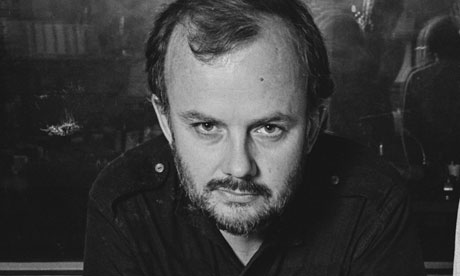
When I was originally sent some quotes from Pete Townshend's John Peel lecture on Apple – which he refers to as a digital vampire – and music piracy, I was ready to fundamentally disagree with the thrust of his argument, but having taken the time to read it and parse it I'm surprised at how much sense there is. Regrettably, though, he also commits some fairly serious and unforgiveable misunderstandings of Apple and Amazon as companies, the internet and, perhaps least forgivable, the nature of creativity and the auteur as arbiter of what's acceptable for public consumption.
So, to start on the positives, Pete. I agree; we face a massive filtering problem today. It's harder than ever to find a consistent thread of music, books, news and media that we will enjoy, come back to and recommend (note I avoid the clearly very loaded term "sharing" here). I agree that there is a problem with people being able to make copies trivially, without loss of quality, and even with your thesis that copies made "in the old days" were better curated, annotated, with more effort and care put into it. We don't do mix tapes any more.
I agree that it is now enormously difficult for an artist to achieve success on the scale that the Who did – ongoing critical acclaim, consistent sales and stadium shows must be wonderful. And I am full of respect for your creative talent and what you achieved.
But this is where we must diverge. Because I also believe that the commercial success you and your peers achieved was a brief, Burgess Shale-like period in popular culture, where the dearth of real social recommendation meant that people like John Peel, and now, sadly, Simon Cowell, imposed their tastes on swaths of youth. Peel (Cowell considerably less so) was an amazing, charismatic, much missed man who was able to tap into the zeitgeist and promote acts who wouldn't have a chance without him. But he had his tastes and dislikes like anyone, and that's the downfall of auteur theory; you don't get to see outside of someone else's perspective. I, for instance, adore lyrical hip-hop of the Def Jux/Anticon variety. How did I find that out? Through exposure to 10,000 new people at university, and then the internet. To discover that on the radio from the farm I grew up on would have required deeply unlikely timing and tuner fettling, I suspect.
And, like the creatures in the Burgess Shale, we can look back and say: this brief flowering of bizarre and fantastical cultural expression was only made possible by its environment. This was what popular culture looked like when the only people who could make a real living were the top 0.0001%, while everyone else toiled in garages, college music rooms and village halls, trying everything in their power to break through. And, sadly, it ended up anodyne, populist and, well, The X Factor.
But those days are done. Broadcast media is losing its power as the sole arbiter of cultural significance, and sites such as those you mention (and many more), plus Twitter, Facebook and so on allow us to find and support many more artists who don't feel a need to make a straw man of their "inner artist". Innovative business models such as KickStarter in the US and PledgeMusic in the UK are helping people to get the resources they need to bootstrap albums, tours, creative products and art, and, as you note, banking and distribution are provided by the platforms at Amazon and Apple. This is an amazing time to be an artist, so long as you're not expecting to be swept up and treated as a genius by a bunch of suits who, heaven forbid, probably make a tidy, but apparently banal to you, hourly rate out of your album sales (honestly, Pete, the attack on people you don't see as creative turns the stomach a little).
Which is kind of sad. I'm not sorry that the period where you were able to be wined and dined by vast, terrifyingly wasteful record labels because you were paying for all of their A&R failures is over. To return to my prehistoric metaphor, the Cambrian period ended with a mass extinction event, but the period that followed allowed for the establishment of the species we see today. We should hope that creative popular culture follows a similar pattern, and that new artists and musicians will be able to be successful, widely heard, nurtured by crowd-supported services such as PledgeMusic rather than bloated A&R corporations; companies with a more human attitude to what they do and who they are doing it for.
• This article was commissioned following a suggestion made by Pairubu. If there's a subject you'd like to see covered on Comment is free, please visit our You tell us page

